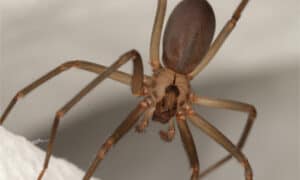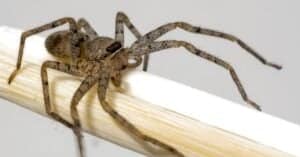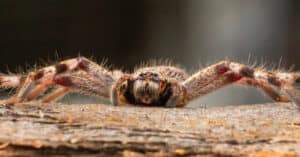If you spider eggs in your plant’s soil, it may be from a species of spider, or it could be from mites. While these mites are tiny houseplant pests, they also fall into the same category as spiders because they are arachnoids. Mites and spiders like to lay their eggs in plant soil because it is a safe place for their offspring to grow. Additionally, the soil provides a moist, soft, and warm environment, which helps their eggs hatch. Furthermore, their offspring get tons of nutrition from the soil and the plant, helping them grow into adults. But you don’t want an infestation on your hands, so here are 9 tips on dealing with spider eggs in plant soil.
1. Try Drying Your Soil
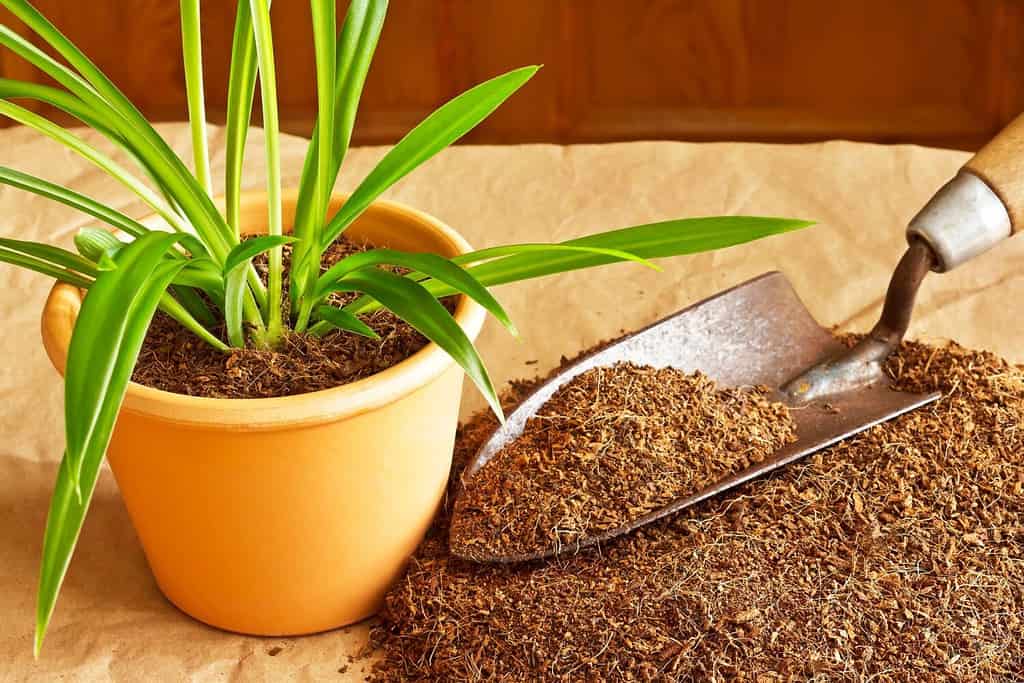
Dry soil causes the spider’s eggs to weaken and die. It also kills pests like springtails and millipedes, and as these pests are food for mites, it’s best to get rid of them as well.
©Agenturfotografin/Shutterstock.com
Spiders find your plant soil appealing because of the moisture, which keeps their eggs warm. So, by drying the ground, you may prevent them from laying their eggs in your plant’s soil. You can do this by refraining from watering the plant until the soil cracks or shows signs that it has thoroughly dried. Dry soil causes the spider’s eggs to weaken and die. It also kills pests like springtails and millipedes, and as these pests are food for mites, it’s best to get rid of them as well. However, this technique may not work for all the plants in your garden. For example, succulents can withstand dry environments, but plants like pothos need moisture to survive and will die if they don’t get watered often enough. Therefore, there are other ways you can get rid of spider eggs in your plant soil.
2. Chemical Insecticides
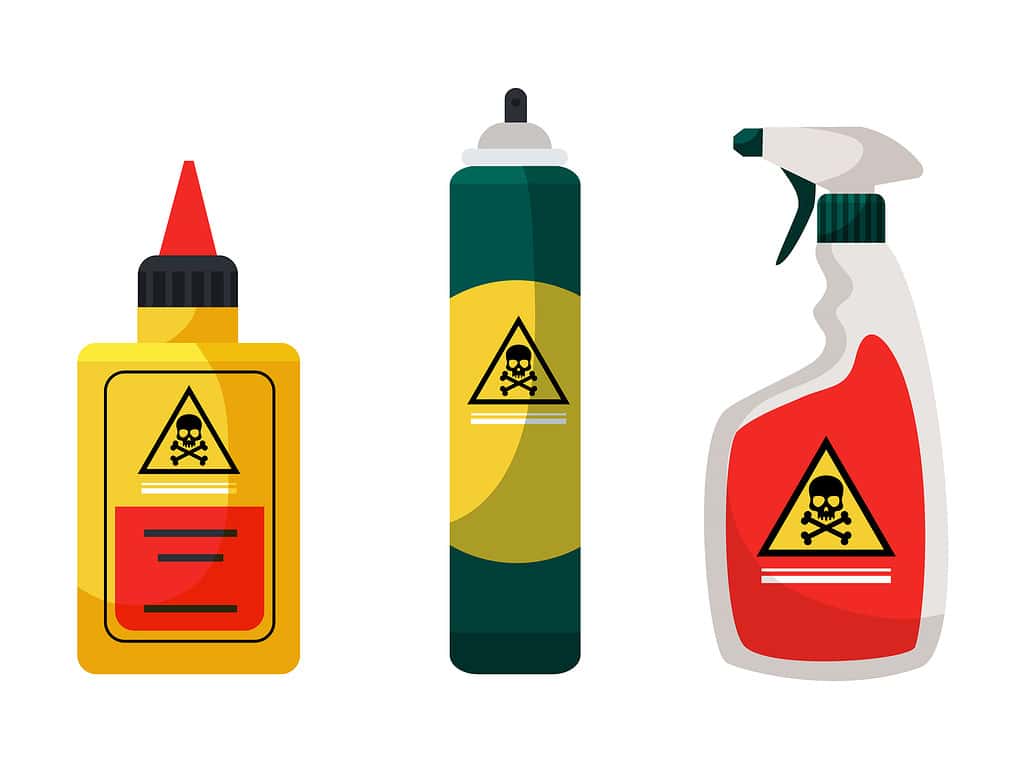
these chemicals are unsafe for pets, plants, or even humans. Therefore, if you have no choice and tried everything you can think of, choose a granular or powdered form of insecticide that you mix with water.
©Irina Cheremisinova/iStock via Getty Images
One of the best methods to eliminate any pest in plant soil is by using chemical insecticides. It will kill mites, spiders, fungus gnats, and more. However, these chemicals are unsafe for pets, plants, or even humans. Therefore, if you have no choice and tried everything you can think of, choose a granular or powdered form of insecticide that you mix with water. Follow the instructions given by the manufacturer. Sometimes, it’s best to use a spray bottle and spray the mixture on the soil. If used correctly, these insecticides will kill the parent, larvae, and eggs.
Safety Precautions
You should take certain safety precautions when using chemical insecticides to protect your children, pets, and yourself. Below is a list of safety measures you can follow:
- To protect against chemical burns, it is best to water the plant before using the insecticide.
- Move the plant to an isolated room or outside before spraying.
- Wear protective gear like rubber gloves and eyewear to reduce exposure to the chemicals.
- Keep your pets and children away from the plant for a few days after using chemical insecticides.
- Always wear a hat because your head can absorb chemicals from the air, which enters the bloodstream.
3. Poison for Insects
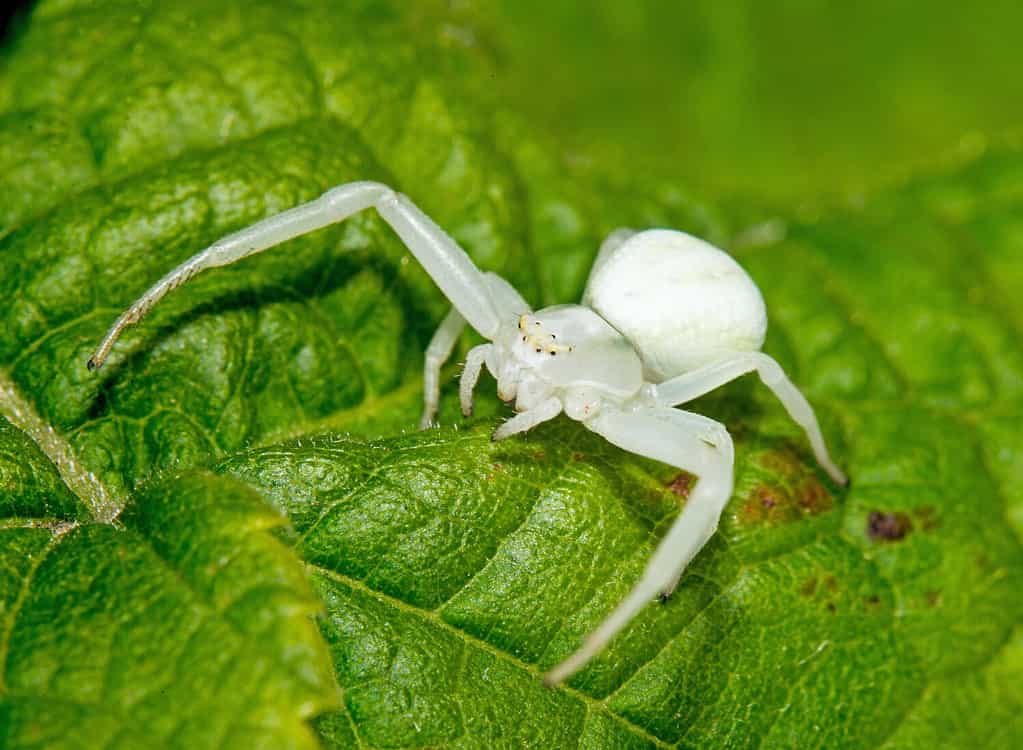
This method only works for spiders and not a mite infestation. Posion for insects usually comes in powder form, which you have to mix with water.
©Muddy knees/Shutterstock.com
Unfortunately, this method only works for spiders and not a mite infestation. Posion for insects usually comes in powder form, which you have to mix with water. The exact measurements will be visible on the packaging, along with safety precautions. However, ensure you are buying the poison specifically formulated for spiders.
4. Use a Vacuum Cleaner
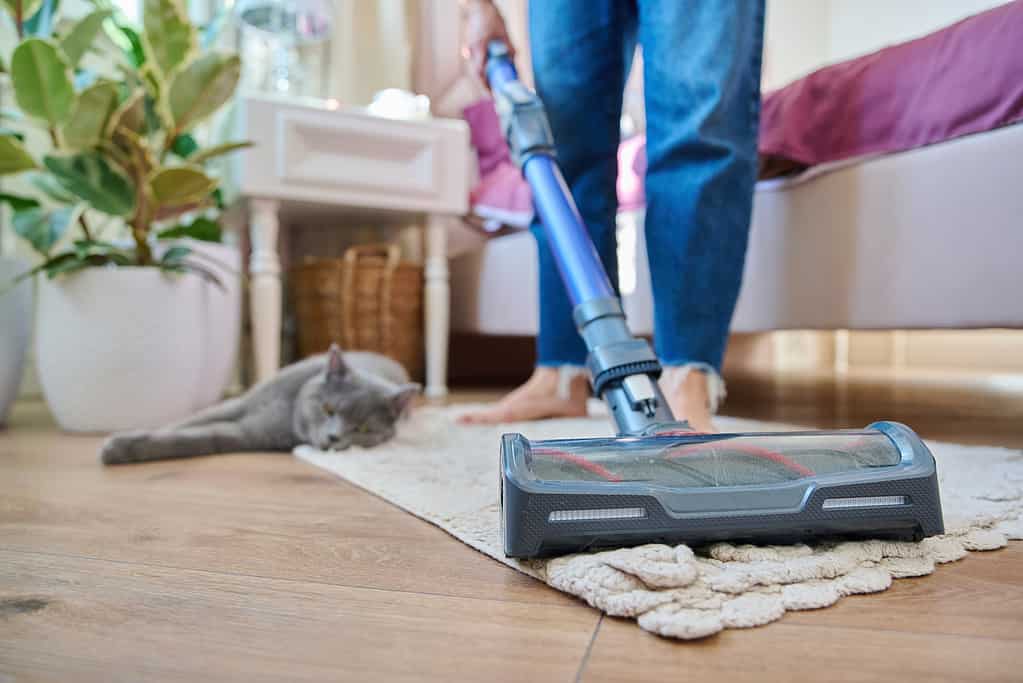
This is one of the safest and most innovative methods to control spider populations in your plant’s soil. It is especially effective if the spider eggs, larvae, and webs are visible through cracks in the soil.
©Valeriy_G/iStock via Getty Images
This is one of the safest and most innovative methods to control spider populations in your plant’s soil. It is especially effective if the spider eggs, larvae, and webs are visible through cracks in the soil. All you have to do is direct the nozzle of your vacuum to the cracks in the soil and turn it on. The vacuum cleaner will suck everything up in a flash, and you can discard the contents when done. However safe this method is, it’s not always 100% effective. If the larvae and eggs are buried deep within the soil, they will not get sucked up. Therefore, you can use additional methods that do not require harmful chemicals.
5. When All Else Fails, Use Alcohol
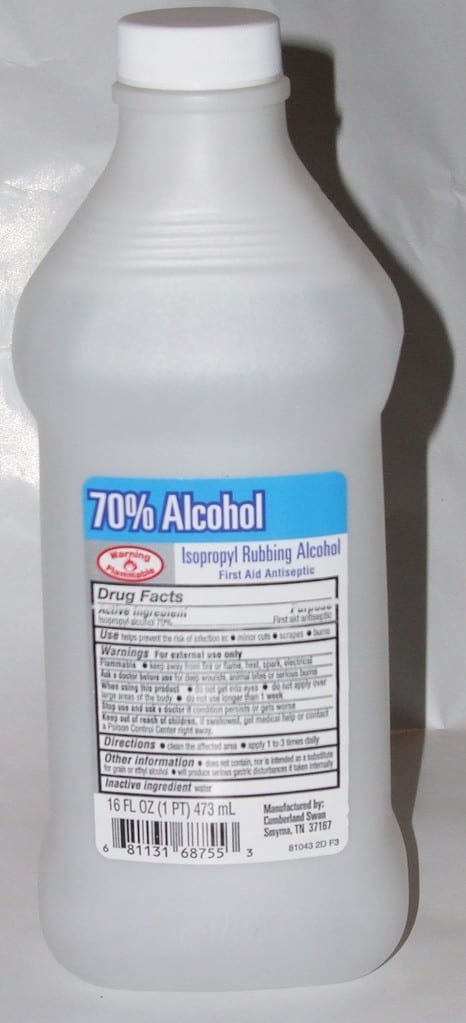
Gently rub the pad on both sides of the plant’s leaves. Use alcohol with 70% isopropyl; it works like a charm.
©Craig Spurrier, CC BY 2.5 – License
A great way to get rid of eggs on the plant’s body is by using rubbing alcohol. All you need to do is take a cotton pad and soak it in any household alcohol. Gently rub the pad on both sides of the plant’s leaves. Use alcohol with 70% isopropyl; it works like a charm.
6. Hydrogen Peroxide
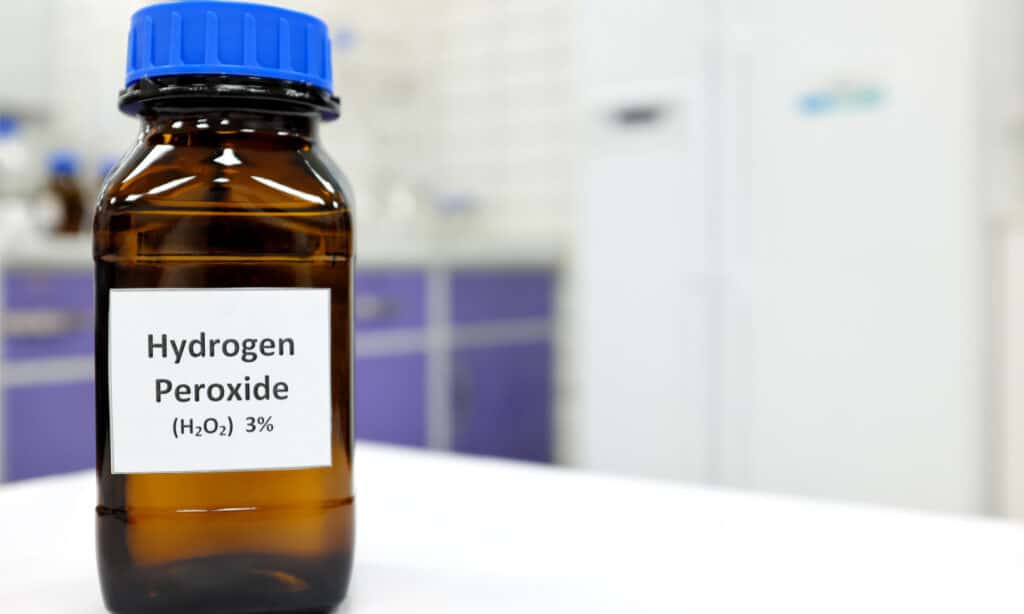
Do not use it on the soil without diluting it first. The best measurement is 3% peroxide added to a full spray bottle of water.
©John Kevin/Shutterstock.com
A universally available chemical you can use to kill spider eggs in your plant’s soil that is not that strong is Hydrogen peroxide. However, do not use it on the soil without diluting it first. The best measurement is 3% peroxide added to a full spray bottle of water. The reaction results in a fizz that kills larvae, eggs, and fully-grown spiders. It also makes the soil uninhabitable because it changes the pH.
7. Insecticidal Soap
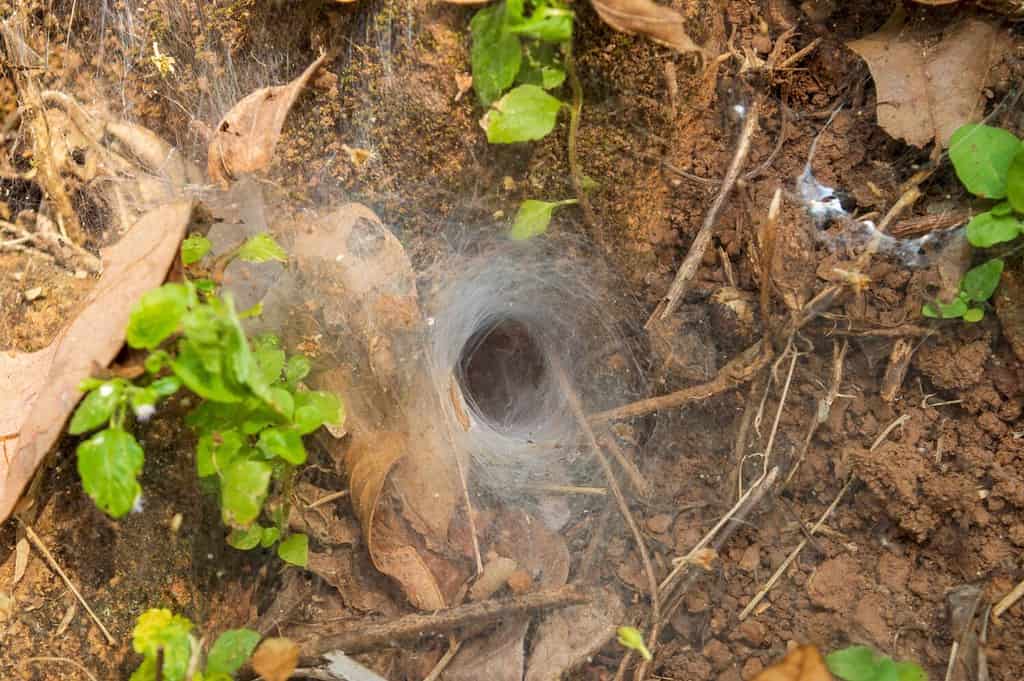
All you have to do is mix one teaspoon of this soap in 34 ounces of water. Add the solution to a spray bottle and spray directly onto the soil and the plant.
©NNphotos/Shutterstock.com
Insecticidal soap is one of the easiest ways to eliminate spider eggs on plant soil for those who don’t want to use harsh chemicals on house plants. All you have to do is mix one teaspoon of this soap in 34 ounces of water. Add the solution to a spray bottle and spray directly onto the soil and the plant. Do this once a week to eliminate any spiders, mites, or their eggs.
8. Biological Control Through Pests
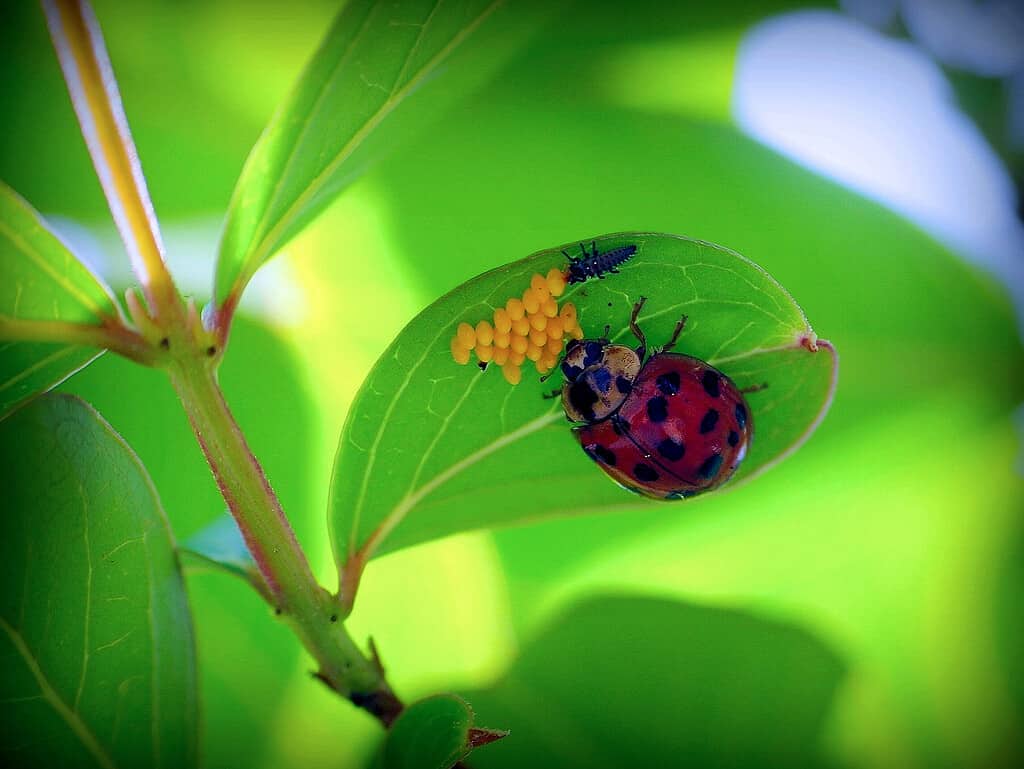
You can release specific pests into the environment that prey on spiders and their eggs, like lacewings, ladybugs, and other mites.
©Christiana Fletcher/iStock via Getty Images
While this is a radical solution, it is effective if done correctly. You can release specific pests into the environment that prey on spiders and their eggs, like lacewings, ladybugs, and other mites. These pests are easily available from local farmer’s markets or online. However, before introducing them to the environment, remove things that will make it difficult for the pests to survive—for example, too many leaves, mulch, and flowers. One of the best things about this method is that it has no negative side effects and prevents spider mites from returning in the future.
9. Neem Oil as a Natural Insecticide
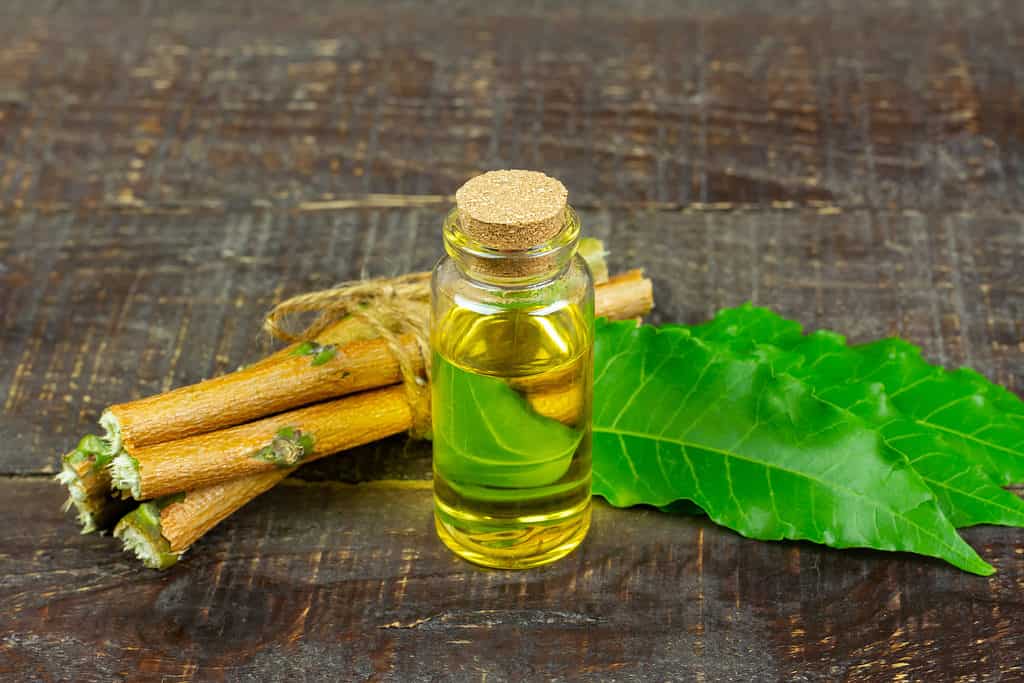
The perfect measurement is one tablespoon of neem oil in one gallon of water with a teaspoon of liquid soap. This solution needs to be applied to the soil and plant once a week.
©iStock.com/Ninetechno
One of the best natural insecticides is neem oil, which can kill all sorts of pests. However, it is especially good at eliminating spiders and their eggs in plant soil, and it is much safer than using chemical insecticides. The perfect measurement is one tablespoon of neem oil in one gallon of water with a teaspoon of liquid soap. This solution needs to be applied to the soil and plant once a week. However, ensure to pour this mixture during the colder periods of the day as hot oil can burn the plant. The neem oil disrupts the life cycle of the eggs. As a result, they will not hatch or get to the larval stage. Furthermore, it will also kill adult mites and spiders.
The photo featured at the top of this post is © iStock.com/ViniSouza128
Thank you for reading! Have some feedback for us? Contact the AZ Animals editorial team.



